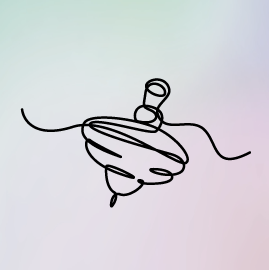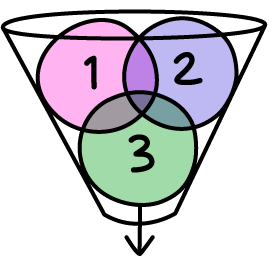The central hypothesis that this project seeks to explore is that scepticism is not just an intellectual problem to be combatted by offering a theory that manages to salvage some knowledge from the clutches of the sceptic, but also an ethical one that engages the whole person of the doubter.
The doubter is one who is whipped; like a spinning top, he remains on the point for a shorter or longer period depending on the strokes of the whip; he is not able to remain on the point any more than the top is.
Kierkegaard, E/O, I, 24

The pandemic has shown us that ‘fake news’ and conspiracy theories can kill. Scepticism about whether there are facts and we can know them can therefore have lethal ‘real world’ consequences. Hence, knowledge scepticism is not only a central problem in epistemology, but also something we need to get to grips with in the culture at large.
In Either/Or, Kierkegaard’s pseudonymous aesthetic character, A, writes:
I think I have courage to doubt everything; I think I have the courage to fight everything. But I do not have the courage to know anything, nor to possess, to own anything.
Kierkegaard, E/O, 45
This quotation could serve as the motto of the project: it is a key aim to try and find out in what sense knowledge requires courage and how this might be relevant to strategies for overcoming scepticism and doubt (both within philosophy itself and the culture at large).
This project takes an entirely novel approach to these issues through the hypothesis that scepticism is not just an intellectual problem to be solved by offering a theory, but also an ethical one that affects the whole person of the doubter. To investigate this hypothesis, the project is centred around Danish philosopher Søren Kierkegaard, who conceives of doubt as springing not only from an absence of knowledge, but also from a lack of intellectual courage and a fear of freedom and human limitation – ideas that have, so far, not been investigated or applied to contemporary debates.
In Genia Schönbaumsfeld’s most recent monograph, The Illusion of Doubt (OUP 2016), she argues that the radical sceptical problem is an illusion spawned by confused ways of thinking about our relation to the world. The present project seeks to take this insight in new directions by relating it to Kierkegaard’s contention that illusions cannot just be removed by theoretical means or by intellectual argument. Rather, certain forms of resistance and anxiety must first be overcome.
When a spider flings itself from a fixed point down into its consequences, it continually sees before it an empty space in which it can find no foothold, however much it stretches.
Kierkegaard, E/O, I, 24

Project structure and outputs
The project is structured into three inter-related components:
1
The Existential Dimension of Doubt
Component 1 will focus on exploring Kierkegaard’s work, in order to develop a systematic account of his ‘existential’ conception of doubt and despair and relate this to both historical and contemporary debates about scepticism.
Years 1 – 4
2
Radical Scepticism, Intellectual Courage and Conspiracy Theory
Component 2 will explore the connection between epistemic vice and scepticism by considering the similarities and differences between radical sceptical scenarios and malevolent global conspiracy theories.
Years 1 -4
3
The Role of Scepticism and Doubt in a ‘Post Truth’ World
Component 3 will examine epistemic nihilism and ‘post-truth’ phenomena in the wider culture, and develop a highly innovative educational module designed to inculcate intellectual courage as a means of countering these nefarious processes.
Years 4 – 5

Project Outputs
3 monographs
3 edited collections
8 journal papers
2 PhD theses
2 educational modules
3 international conferences
7 workshops
1 public lecture
1 project website
Overall, the project will provide the conceptual framework for an entirely new approach to scepticism in epistemology, a novel understanding of the relationship between radical scepticism and conspiracy theory, and an empirically-informed analysis of the importance of intellectual courage for knowledge acquisition.
